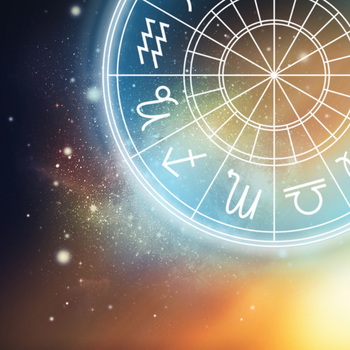What is an archetype? On first hearing the term, you might think it means something like “stereotype.” But archetypes are far richer and more interesting than that, and provide one of the foundational aspects of Jungian depth psychology. One of the earliest beginnings of the idea may be Plato’s writings in the fourth century B.C.E.. Although he did not use the actual term archetype (in Greek, “arche” original, and “typos” form), he did use the term eidos, translated as either Form or Idea. But it was not until the Swiss psychologist, and the founder of analytical psychology, C. G. Jung took up archetypes in works such as The Archetypes and the Collective Unconscious in the first half of the 20th century that it came into prominence in theoretical and psychological discourse.
As Keiron Le Grice, Pacifica’s Co-Chair of the Jungian and Archetypal Studies specialization of the Depth Psychology program, describes Jung’s view of archetypes, “[They] are the universal principles, patterns, and powers that move us all and shape our lives from the collective unconscious—the containing psychological matrix underlying consciousness. They are the governing principles in the background of experience that together comprise a kind of thematic framework within which our lives unfold. The archetypes manifest within and through our thoughts and feelings, drives and desires, and through circumstances and events in the world. They are not causes in the usual sense, but they are enacted by and revealed through causal chains of events.”
Jung focused primarily on a few foundational archetypes, including the shadow, anima, animus, and the Self. Taking myths and symbols as expressions of the psyche, and therefore reflective of the psyche, Jung identified a number of other archetypes, which Le Grice describes as “the hero, the mother, the child, the trickster, the archetype of the spirit (of which the wise old man is one form), rebirth, and Dionysus.” These have trickled down in popular perception into categories such as the sage, the innocent, the explorer, the rebel, the hero, the trickster, the lover, the caregiver, etc.
Read More
Posted in:
archetypes,
C.G. Jung,
depth psychology,
Pacifica Graduate Institute,
Jungian & Archetypal Studies
Dylan Hoffman, Ph.D., is a relatively new addition to the faculty of Pacifica’s Jungian & Archetypal Studies program. I’m excited to learn more about his perspective and teaching.
Angela: You began your career at Pacifica in our M.A./Ph.D. program in Jungian & Archetypal Studies (DJA). What attracted you to Pacifica, and in particular the study of Archetypes?
Read More
Posted in:
archetypes,
C.G. Jung,
Education,
depth psychology,
Pacifica Graduate Institute,
Spiritual,
Jungian & Archetypal Studies
Gelareh Khoie is pursuing her Ph.D. at Pacifica in Jungian and Archetypal Studies with an Emphasis in Depth Psychology. A writer, artist, DJ, and teacher, her studies have ranged from the mythology of disco to the archetype of Artemis. I’m delighted to learn more about her.
Angela: You write beautifully, are a natural story teller, and you have an article up at “Personality Type In Depth”. I read “Artemis as Spirit of the Wild” with interest.
Here is a quote that stood out:
“As the light and dark sides of the functions made their appearances in my life, Artemisian threads helped me cope with traumatic circumstances by continually providing a stream of life-affirming power. Indeed, the Artemis sensibility traveled in lockstep with my growing function maturity. Ultimately, as is her wont, Artemis helped me give birth to new consciousness by revealing the fecundity inherent in my wounds. For Artemis is the cool-headed and unsentimental realist who demands that we look at our true selves with unvarnished eyes and insists that we accept the darkness and the danger of the deep wilderness, the very darkness that gives life its richness.”
Is Artemis part of your dissertation research and how has your study of her continued to influence your understanding of the human psyche?
Read More
Posted in:
archetypes,
creativity,
depth psychology,
individuation,
Jungian & Archetypal Studies
A guest post by Keiron Le Grice, Ph.D.
The following article is based on notes made for an online presentation for Pacifica Graduate Institute on March 20, 2020.
In response to the exceptionally testing circumstances we now find ourselves in, as we try to deal with the traumatic impact of the coronavirus as it aggressively spreads around many parts of the world, I wanted to share some reflections on how we might gain a larger perspective on what is happening, and what we’re passing through, in terms of the archetypal patterns of history. At the same time, these reflections give a sense for the kind of things we are concerned with at Pacifica, the ideas we’re exploring in courses and in the classroom, and some of the ways in which we’re trying to understand and illuminate human nature and our place in the world at this critical moment of our collective history.
Read More
Posted in:
topics,
archetypes,
Pacifica Graduate Institute,
collective trauma,
Jungian & Archetypal Studies,
pandemic,
astrology
A blog post by Melissa Ruisz Nazario based on a webinar presented by Keiron Le Grice, Ph.D.
What is archetypal cosmology, and why might you want to study it? Check out the post Archetypal Cosmology, Part I: Beyond Outer and Inner Space for a more in-depth description that gives background on the field.
To summarize, archetypal cosmology is a new discipline but rooted in the ancient practice of astrology. It is based on the idea that the celestial bodies like the solar system’s planets and the sun and their relative configurations reflect the deep order of the psyche—the psyche being the totality of psychological experience, according to C.G. Jung.
Read More
Posted in:
The Psyche,
James Hillman,
archetypes,
Psychology,
soul,
depth psychology,
psyche,
humanities,
Pacifica Graduate Institute,
sacred,
cosmology,
symbolism,
Spiritual
A blog post by Melissa Ruisz Nazario based on a webinar presented by Keiron Le Grice, Ph.D.
Astrology is the ancient practice of looking at the relative positions of celestial bodies and their relationship and influence on earth, the natural world, and humans. [1] Depth psychology has to do with psychologies and therapies involving “the exploration of the subtle, unconscious, and transpersonal aspects of human experience.” [2]
Read More
Posted in:
The Psyche,
James Hillman,
archetypes,
Psychology,
soul,
depth psychology,
psyche,
humanities,
Pacifica Graduate Institute,
sacred,
cosmology,
symbolism,
Spiritual
A blog post by Melissa Ruisz Nazario based on a webinar presented by Susan Rowland, Ph.D.
“Depth psychology is a psychology of the creative imagination,” says Susan Rowland, Ph.D., Chair of Pacifica’s M.A. program in Engaged Humanities and the Creative Life. She explains that while depth psychology originated and continues to be a powerful form of psychotherapy, its devotion to the creative imagination makes it important beyond the consulting room.
Read More
Posted in:
Joseph Campbell,
archetypes,
Psychology,
soul,
depth psychology,
humanities,
Pacifica Graduate Institute,
sacred,
symbolism,
Spiritual
A blog post by Melissa Ruisz Nazario
In the preface to the thirtieth anniversary edition of her seminal book, Writing Down the Bones [1], first published in 1986, Natalie Goldberg explains why she thinks so many people want to write.
“I don’t think everyone wants to create the great American novel, but we all have a dream of telling our stories–of realizing what we think, feel, and see before we die,” she observes. “Writing is a path to meet ourselves.”
The “bones” Goldberg wants her students to write down is, in her words, “the essential, awake speech of their minds.” She acknowledges this is easier said than done: “But I also know that I can’t just say, okay, write clearly and with great honesty. In class, we try different techniques and methods. Eventually the students hit the mark, come home to what they need to say and how they need to say it.”
Read More
Posted in:
Joseph Campbell,
archetypes,
Psychology,
soul,
depth psychology,
sacred,
symbolism,
Spiritual
A guest blog post by Mary A. Wood, Ph.D., co-Chair of the M.A. Program in Engaged Humanities and the Creative Life at Pacifica Graduate Institute.
“The soul should always stand ajar, ready to welcome the ecstatic experience.” —Emily Dickinson
There are moments in life when time seems to stand still—moments when we find ourselves transfixed, and eventually transformed. These moments can be cosmic in scale, as reflected in the awe that we feel when beholding a rare solar eclipse, or an approaching storm. These moments may also be quite intimate, but no less moving, such as when we witness an animal emerging from hiding or when we hear an exquisite song. We recognize, and always remember these moments because they are announced by bodily sensations; we gasp, our hearts beat faster, and tears often flow. Our bodies tell us that the ordinary has given way to the extraordinary. These experiences are best described as “aesthetic,” as we find ourselves living, at least for a few moments, as creatures that are gloriously and achingly alive.
Read More
Posted in:
Joseph Campbell,
The Psyche,
James Hillman,
archetypes,
transformative,
C.G. Jung,
Psychology,
art,
soul,
depth psychology,
symbol,
mythological,
humanities,
sacred,
symbolism,
Spiritual
A blog post by Melissa Ruisz Nazario
At this time of year in the northern hemisphere, the earth’s axis orients away from the sun, temperatures cool, and many of us celebrate with loved ones some form of thankfulness and respite from work–modern iterations of our ancestors’ harvest festivals.
Though the concept of gratitude is also ancient, it has become a bit of a modern buzzword. So, is gratitude really as beneficial as the masses say it is? Actually, yes. Robert A. Emmons and Robin Stern, researchers known for their work in studying gratitude, reviewed studies on the subject and list several of the physical, emotional, and psychological outcomes of cultivating gratitude in “Gratitude as a Psychotherapeutic Intervention.” [1]
Read More
Posted in:
The Psyche,
archetypes,
transformative,
Psychology,
soul,
depth psychology,
mythological,
Spiritual,
resources













